-
Product Name
Creatine Kinase M-Specific antibody
- Documents
-
Description
Creatine Kinase M-Specific Rabbit Polyclonal antibody. Positive IHC detected in human skeletal muscle tissue, rat heart tissue. Positive IF detected in HepG2 cells. Positive WB detected in mouse heart tissue, mouse brain tissue, mouse small intestine tissue. Positive IP detected in mouse brain tissue. Observed molecular weight by Western-blot: 43 kDa
-
Tested applications
ELISA, WB, IHC, IF, IP
-
Species reactivity
Human,Mouse,Rat; other species not tested.
-
Alternative names
CKMM antibody; Creatine Kinase MM antibody; Creatine Kinase M-Specific antibody; Creatine kinase M chain antibody; Creatine kinase M type antibody; creatine kinase antibody; muscle antibody; M CK antibody
-
Isotype
Rabbit IgG
-
Preparation
This antibody was obtained by immunization of Peptide (Accession Number: NM_001824). Purification method: Antigen affinity purified.
-
Clonality
Polyclonal
-
Formulation
PBS with 0.02% sodium azide and 50% glycerol pH 7.3.
-
Storage instructions
Store at -20℃. DO NOT ALIQUOT
-
Applications
Recommended Dilution:
WB: 1:1000-1:10000
IP: 1:1000-1:10000
IHC: 1:20-1:200
IF: 1:10-1:100
-
Validations
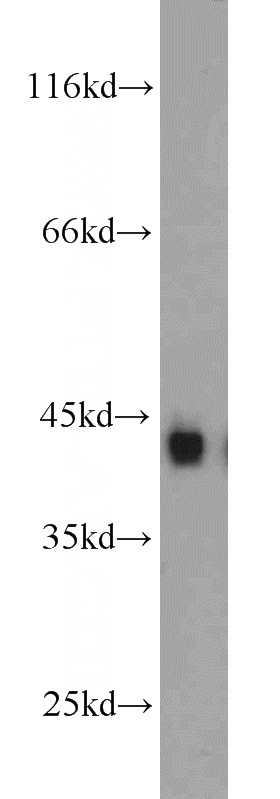
mouse heart tissue were subjected to SDS PAGE followed by western blot with Catalog No:109542(CKM-Specific antibody) at dilution of 1:2000
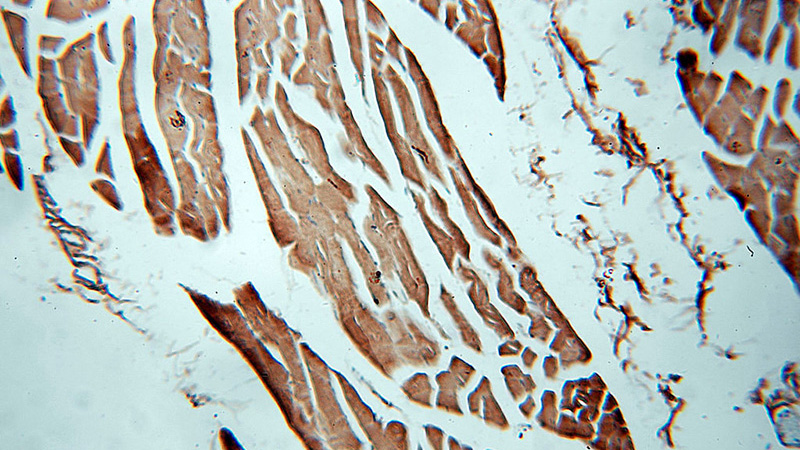
Immunohistochemical of paraffin-embedded human skeletal muscle using Catalog No:109542(CKM-Specific antibody) at dilution of 1:100 (under 10x lens)
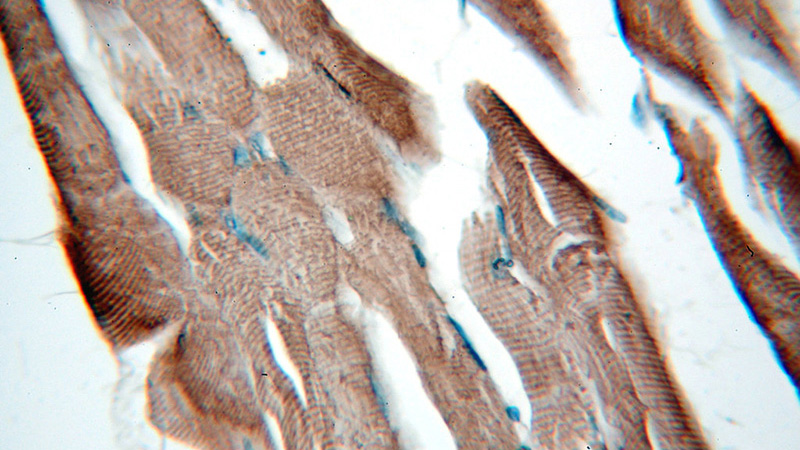
Immunohistochemical of paraffin-embedded human skeletal muscle using Catalog No:109542(CKM-Specific antibody) at dilution of 1:100 (under 40x lens)
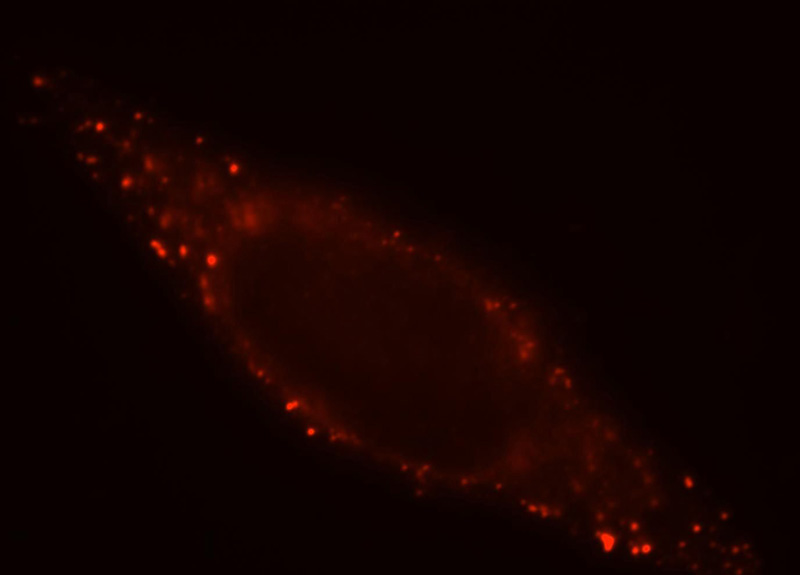
Immunofluorescent analysis of HepG2 cells, using CKM antibody Catalog No:109542 at 1:25 dilution and Rhodamine-labeled goat anti-rabbit IgG (red).
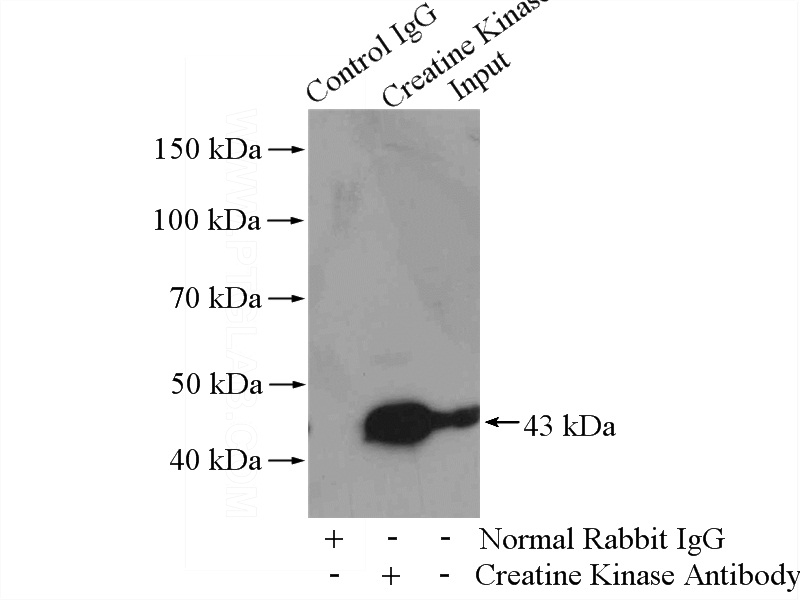
IP Result of anti-CKM-Specific (IP:Catalog No:109542, 4ug; Detection:Catalog No:109542 1:2000) with mouse brain tissue lysate 4000ug.
-
Background
CKM, also named as CKMM and M-CK, is a member of the ATP:guanido phosphotransferase protein family. It is a cytoplasmic enzyme involved in energy homeostasis and is an important serum marker for myocardial infarction. CKM reversibly catalyzes the transfer of phosphate between ATP and various phosphogens such as creatine phosphate. It acts as a homodimer in striated muscle as well as in other tissues, and as a heterodimer with a similar brain isozyme in heart. CK isoenzymes play a central role in energy transduction in tissues with large, fluctuating energy demands, such as skeletal muscle, heart, brain and spermatozoa. CK MB consists of a dimer of nonidentical chains. With MM being the major form in skeletal muscle and myocardium, MB existing in myocardium, and BB existing in many tissues, especially brain. Inactivation of creatine kinase by gliotoxin was accompanied by the formation of a 37-kDa form of the enzyme.This oxidized form of creatine kinase was rapidly reconverted to the 42 kDa species by the addition of reducing agents concomitant with restoration of activity.(PMID: 10827185).
Related Products / Services
Please note: All products are "FOR RESEARCH USE ONLY AND ARE NOT INTENDED FOR DIAGNOSTIC OR THERAPEUTIC USE"
